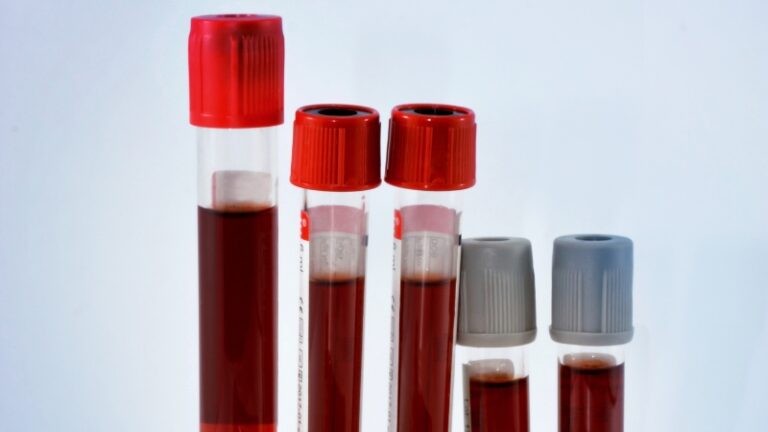Blood types might seem like something you’re born with and never think about again, a fixed biological label, written in your DNA.
For most people, that’s exactly true: your blood type stays the same from birth to death. It doesn’t shift because of what you eat, how much you exercise, or any supplements you take.
Still, the idea that a blood type could ever change isn’t pure myth.
In rare and fascinating medical circumstances, scientists have documented real cases where a person’s blood type appeared to change or actually did change. These shifts don’t happen through natural lifestyle factors, but through extraordinary biological events or medical interventions.
Can Blood Type Change Naturally?
In short: no, not under normal conditions. Your blood type is determined by genes inherited from your parents, and those genes don’t change over time.
Your red blood cells carry specific proteins, known as antigens, that define your blood type, and unless something dramatic happens to your blood or immune system, those markers remain constant for life.
So, no amount of dieting, detoxing, or “blood type–based eating plans” can transform Type A blood into Type O. That’s pure pseudoscience, and studies have consistently shown that lifestyle cannot alter your blood classification.
However, there are a few exceptional scenarios, such as bone marrow transplants, severe illness, or certain cancers, that can alter or mask blood type expression. In these situations, it’s not nature working on its own, but complex medical or cellular changes temporarily rewriting what your blood looks like in tests.
What Blood Types Exist?
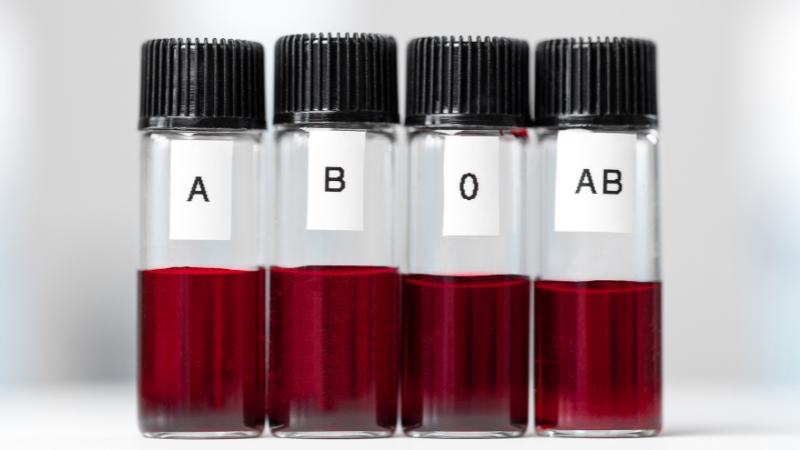
Without correct blood type matching, serious reactions can occur during transfusions or organ transplants. Two primary systems determine these classifications: the ABO system and the Rh factor.
The ABO and Rh Systems
Blood classification begins with the ABO system, first discovered by Austrian scientist Karl Landsteiner in 1900.
This discovery revolutionized modern medicine by explaining why some blood transfusions saved lives while others caused dangerous reactions.
The ABO system divides blood into four main types, A, B, AB, and O, based on the antigens found on the surface of red blood cells.
Key points of the ABO system:
| Blood Type | Antigens on Red Blood Cells | Antibodies in Plasma | Compatibility |
|---|---|---|---|
| A | A antigens | Anti-B antibodies | Can receive A and O blood; can donate to A and AB |
| B | B antigens | Anti-A antibodies | Can receive B and O blood; can donate to B and AB |
| AB | A and B antigens | None | Universal recipient; can donate only to AB |
| O | None | Anti-A and Anti-B antibodies | Universal donor (for red blood cells); can receive only O |
Antigens are proteins or sugars on the cell surface that signal to the immune system what belongs in the body. When a person receives blood that contains foreign antigens, the immune system may attack those cells, leading to serious complications such as hemolytic reactions.
In addition to the ABO system, the Rh factor provides a second important classification. The Rh system is based on the presence or absence of the Rh D antigen, a protein found on red blood cells.
If the Rh D antigen is present, the blood type is labeled as positive (for example, A+ or B+). If it is absent, the type is negative (A− or B−). The Rh factor becomes particularly significant during pregnancy, as an Rh-negative mother carrying an Rh-positive baby can develop antibodies that may affect future pregnancies if not treated properly.
Genetic Determination
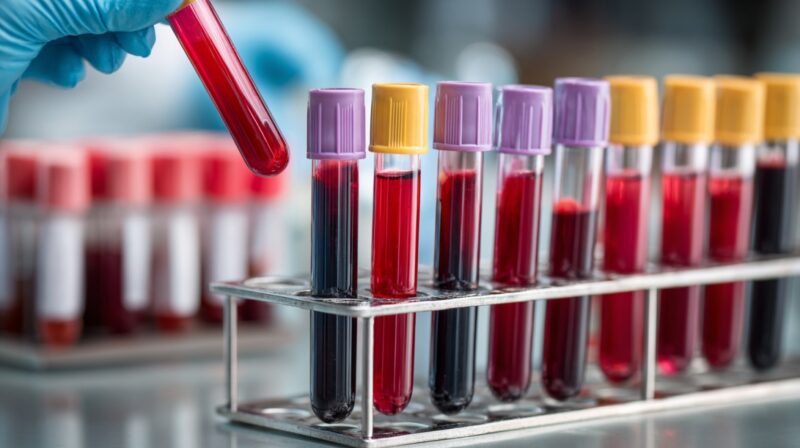
Blood type is an inherited genetic trait, meaning it is passed from parents to their children through genes.
Each parent contributes one allele (gene variant) that determines the expression of blood antigens in the offspring. The combination of these alleles defines the child’s blood group.
- A parent with type A (genotype AO or AA) and a parent with type B (genotype BO or BB) can produce a child with A, B, AB, or O blood, depending on the combination of alleles inherited.
- A person with type O blood has inherited two O alleles, which means their red blood cells lack both A and B antigens.
The ABO gene is located on chromosome 9, while the Rh factor gene resides on chromosome 1.
These genes encode specific enzymes and proteins responsible for producing or lacking certain antigens. Because the instructions for making these antigens are written into DNA, a person’s blood type is typically permanent for life.
Environmental factors such as diet, stress, or lifestyle can influence many aspects of health, but they cannot alter the genetic code.
Blood type remains constant unless medical intervention, such as a bone marrow transplant, introduces a new genetic source of blood cell production.
Medical Scenarios Where Blood Type Can Change
@medvision20 How Bone Marrow Transplant Surgery Is Performed ( 3D Animation) #3dmedicalanimation #medical3danimation #bonemarrowtransplant #bonemarrowsurgery #bonemarrowrecovery #stemcelltransplant #leukemiaawareness ♬ Epic Music(863502) – Draganov89
A bone marrow transplant is one of the few cases where a person’s blood type can truly change for life. This happens when a patient receives a bone marrow donation from someone with a different blood group.
Since bone marrow produces red blood cells, the donor’s genetic material takes over that function.
- Donor marrow replaces the recipient’s blood-producing cells.
- The new marrow generates blood cells with the donor’s antigens.
- Over time, all circulating red cells reflect the donor’s blood type.
After recovery, the patient’s blood type permanently matches that of the donor, showing how cell regeneration can override the original genetic expression of the recipient’s blood.
Major Blood Transfusions
Massive blood transfusions can temporarily alter a person’s apparent blood type.
This occurs when someone receives a large volume of blood with a different ABO type during surgery or trauma treatment.
- A person with AB blood receives a significant amount of type O blood.
- Laboratory testing may show the patient as type O for a short time.
- Once the transfused cells are naturally replaced by new ones produced by the patient’s own marrow, the original AB type reappears.
- The change is short-lived and purely due to the dilution of existing blood, not a genetic modification.
Bacterial Infections (Acquired B Phenomenon)
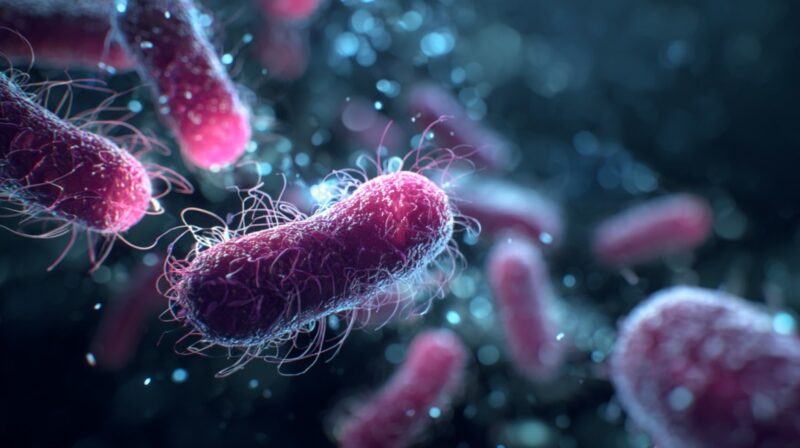
Rare bacterial infections can mimic changes in blood type through chemical interference.
Certain intestinal bacteria release enzymes that modify antigens on red blood cells. In some cases, individuals with type A blood may temporarily test as type B due to these enzymatic effects.
- Known as the Acquired B phenomenon.
- Often linked to severe infections or intestinal diseases, such as colon cancer or sepsis.
- Reverses naturally once the infection is treated and red cells regenerate.
Although temporary, this phenomenon illustrates how external biological factors can modify antigen appearance on a cellular level.
Misconceptions and Myths
Blood type has long been surrounded by myths and cultural interpretations, many of which are more folklore than fact.
These beliefs often make people think they can change or “influence” their blood type through lifestyle, when in truth it’s a genetic trait that remains fixed throughout life.
Can Diet or Supplements Change Blood Type?

Despite widespread claims, no food, supplement, or lifestyle habit can change your blood type – it’s coded in your DNA from birth.
Many self-help movements popularized the idea of a “blood type diet,” promoting specific foods to supposedly improve digestion, metabolism, or immunity depending on whether you’re type A, B, AB, or O. While this concept sounds appealing, science doesn’t back it up.
Scientific reality:
Eating healthy is always beneficial for your body – but expecting kale, supplements, or smoothies to change your blood group is simply unrealistic.
Blood Type and Personality Theories
In some parts of Asia, particularly Japan and South Korea, blood type is treated as a kind of personality horoscope.
According to these cultural traditions, type A individuals are said to be calm and detail-oriented, type B people are creative and independent, while type O personalities are outgoing and confident.
However:
Though harmless and fun as social conversation, such personality theories have no grounding in medicine or genetics. Blood type can tell you about your compatibility in transfusions – not in relationships or character.
How to Know Your Blood Type
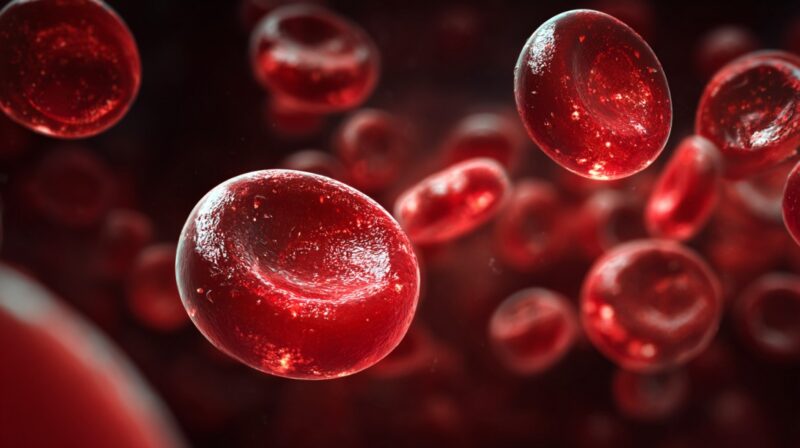
Knowing one’s blood type can be valuable, especially in medical situations such as surgeries, transfusions, or pregnancy. Most health plans cover essential and emergency surgeries, but elective or cosmetic procedures may not fall under standard coverage.
Accurate testing ensures safety and compatibility when receiving blood or organs.
Hospital or Blood Donation Testing
Hospitals typically determine blood type during major procedures, childbirth, or emergency care. Blood donation centers also perform testing before collecting blood, ensuring that both donors and recipients are properly matched.
These methods are conducted by trained professionals using certified laboratory tools, making them the most reliable source of accurate results.
- Professionally verified.
- Permanent medical record creation.
- Necessary for surgical planning or emergency identification.
Home Blood Type Kits
For personal curiosity or convenience, home testing kits offer an easy way to find out one’s blood type.
Brands such as The Tester’s self-test provide accurate results within seconds using simple at-home procedures.
- A small finger prick collects a drop of blood.
- The sample is applied to a reagent card that reacts visibly to indicate the ABO and Rh types.
- Results appear within less than a minute.
While useful, these kits should be used carefully and cross-verified through a professional lab for critical medical needs.
Importance of Knowing Your Blood Type
View this post on Instagram
Knowing your blood type can be lifesaving in many situations.
Quick access to that information can make the difference during emergencies, when time-sensitive decisions are made.
- Prevents incompatible transfusions that can cause severe reactions.
- Ensures safe organ transplant matches.
- Assists doctors in managing pregnancies where Rh incompatibility poses risks to the baby.
- Helps travelers or frequent donors prepare for medical emergencies abroad.
Being informed about blood type is a small yet crucial step in maintaining health and preparedness.
Summary
Blood type remains stable for nearly all individuals throughout life, but rare medical procedures and infections can cause real or temporary alterations.
Cases such as bone marrow transplants or bacterial enzyme interference illustrate that change is possible under exceptional conditions.
For most people, however, blood type remains constant, confirming that it is a medical rarity rather than a myth.

